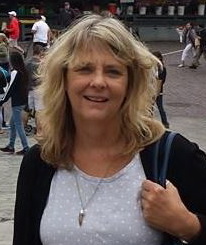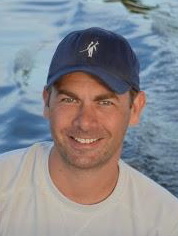|
|


|
BUILDING THE NEXT GENERATION OF LEADERSHIP IN MARINE CONSERVATION: A LEARNING FORUM
October 01-12, 2015 Ancona,
Italy
CONTEXT
Oceans make up nearly 70% of our world by surface area, over 95% of habitable space by volume, and yet only somewhere between 1-2.09% has been reserved for ecosystem protection within the 6,800 Marine Protected Areas designated globally, and only a tiny fraction of those are effectively protected.
The challenges to effectively managing marine protected areas are echoed throughout the globe: lack of sustainable and consistent financing sources sufficient to support implementation of management plans; the need for integrated and complementary jurisdictional authorities both within and adjacent to MPAs; sufficient management and the lack of decision making authority directly granted to MPA managers; the resounding need for strong links within and throughout the enforcement chain; and increasing pressures on and demand for marine space. However, in spite of all of these seemingly overwhelming external challenges, the three most common elements identified as critical to the success of MPAs are design, management and leadership.
WORKSHOP
OVERVIEW
This 12-day Learning Forum is designed to identify outstanding individuals with promise of leadership, and those with a strong and committed desire to move into an MPA leadership role through building their skills in leading and co-leading teams, facilitating stakeholder and community engagement, collaborating with a broad range of partners, navigating and negotiating conflict, engaging in professional mentorship and peer support, and committing to lifelong individual leadership development. There will be a competitive application process, with total enrollment limited to 14 individuals.
Participation is limited to maximum
20 very motivated people.
Each
has to bring his/her own laptop computer, whatever operating system MacOS, Linux or Windows.
|
Program
SESSION 1: PERSONAL LEADERSHIP DEVELOPMENT IN THE CONTEXT OF MARINE CONSERVATION (2 days)
This is a three-part session that calls on each individual to both identify and define leadership qualities in very personal terms. Once that core center of strength is identified for each individual, then it will be applied to build and empower strong and adaptive internal and external teams assembled to achieve results-based conservation initiatives.
1. INTRODUCING THE CONCEPT OF SELF-LEADERSHIP: This session provides and opportunity for a more internal focus and gaining insight into one's personal leadership style by thinking about leadership in different ways based on personal core values and building awareness of both one's hindering and helpful personal traits, then using this knowledge to move from thinking about leadership as "I" to empowerment of "we".
2. BUILDING PERFORMANCE-BASED TEAMS: This session focuses on the power and purpose of working together - building the troops and developing the ability to maintain equanimity in the face of adversity by cultivating an environment that brings out the best in others and inspires collaboration and mutual support by staying focused on common goals or results rather than the success of individuals. This session provides an opportunity to explore the use of developing a common language and a unified identity and purpose amongst team members to create a supportive internal environment.
3. RE-THINKING AND FORGING NEW PARTNERSHIP NETWORKS WITH STRANGE BEDFELLOWS: This session focuses on understanding and living on the edge of possibilities for new and innovative partnerships leading to adaptive leadership. This session provides and opportunity to draw on some of the skills and thinking used in developing a unified performance-based team (above) and applying them to developing a broader network of partners to initiate and successfully achieve innovative conservation initiatives.
SESSION 2: LEARNED & PRACTISED LEADERSHIP SKILLS (3 days)
This session provides an opportunity to either learn or fine-tune some basic skills that can be applied to both building successful internal and external results-based teams, as well as applied to managing multi-stakeholder engagement for multiple-use MPAs.
1&2. FACILITATION AND CONFLICT RESOLUTION SKILLS
This two-day session is designed to increase participants' ability to plan and facilitate a meeting (or a series of meetings) that minimize conflict and enhance problem solving. Collaboration is often cited as a good way to address coastal and marine resource management issues, but the collaborative process is complicated, requiring a systematic approach. This course provides the skills and tools to design and implement collaborative approaches.
3. PROBLEM SOLVING METHODS AND APPROACHES
This one-day interactive session provides the knowledge, skills, and tools to design and implement a problem solving process that has measurable impacts on the intended target or result. Participants will learn to increase their effectiveness at problem solving by applying a systems approach to designing a new road forward to addressing an (old) problem. This approach helps build in accountability, reveal assumptions, create a targeted effort and strategic thinking, and better articulate the root cause of the problem.
SESSION 3: CONFRONTING THE INEVITABLE CHALLANGES OF MULTIPLE-USE, MULTI-STAKEHOLDER MPA PROBLEM-SOLVING
(6 days)
This session is comprised of 3 two-day segments. The first 2 of the two-day segments are focused on collaborative problem-solving. Working in small teams of 2-3, these sessions provide an opportunity to exercise the knowledge and understanding built during session one (Personal Leadership Development), along with the skills developed during session 2 (facilitation, conflict resolution and problem solving), and apply them to building teams and processes to address specific, assigned and focused natural resource management challenges faced by multiple-use MPA managers (as exemplified by the Corsica MPAs). The 3rd segment moves beyond problem solving to innovative thinking and visionary approaches to moving MPAs forward to a new era of marine conservation. During each of the 3 sessions, participants may schedule consultations with learning forum leads and interact with Corsica MPA staff to ground truth their responses to their problem-solving assignments. For each of the 3 two-day sessions, the session begins with ½ day in the classroom, 1 ½ days working independently in small teams, then a full evening of peer-to-peer review of each teams' process outcome. Topical areas covered may include:
1.TAKING ACTION IN THE FACE OF UNCERTAINTY: meeting new and emerging challenges of tomorrow, while addressing persistent stressors of today (adapting to climate change, conserving critical habitats, valuing ecosystem services, addressing increasing demands for ocean space).
2. PROMOTING COOPERATION WITH STAKEHOLDERS WHILE FACING THE INEVITABILITY OF CONFLICTING AGENDAS: addressing conflicts between stakeholder interests that pit economic progress against marine conservation (conserving biodiversity for future generations, allocating scarce resources, trade-offs between economic development and biodiversity protection, mitigating both land-based and marine-based sources of impacts).
3. ADDRESSING COMPLEX MANAGEMENT CHALLENGES: addressing disproportionate impacts on targeted groups (impacts on under-represented communities and sub-populations, protecting the rights of indigenous people, impacts on those most highly dependent on MPA natural resources for food security and livelihoods).
SESSION 4: SELF-DIRECTED PROGRAM TO MAXIMIZE CONTINUED SUPPORT FOR LEADERSHIP DEVELOPMENT
(1 day)
This session provides each participant with the opportunity to build an individual leadership development plan and work with a mentor to develop a road map for realizing this self-directed plan.
1. PEER SUPPORT SUB-GROUPS: creating activated and supported peer-support sub-groups to ensure learning forum skills and knowledge gained are exercised both in the learning forum and carried out into the work place.
2. PROFESSIONAL MENTORSHIP PROGRAM: providing opportunities for professional mentors to work side-by-side with Leadership Learning Forum participants during and after the forum.
3. SITE EXCHANGES: field-based practicums to maximize exposure to a range of fully-functional, results-based MPA management approaches in biophysical, socio-cultural and governance settings that are new to MPA practitioners from the Mediterranean.
Lesson
time:
9-13 / 14-18
Coffee
break mid-morning
and mid-afternoon

Trainers
|
 Sarah Fangman Sarah Fangman
National Oceanographic and Atmospheric Administration (NOAA)
sarah.fangman@noaa.gov
Sarah Fangman is the Superintendent for Gray's Reef National Marine Sanctuary. She has been with the Office of National Marine Sanctuaries working in MPA management since 1998, first as Science Coordinator for the Channel Islands National Marine Sanctuary and then as Program Coordinator for the Southeast Atlantic, Gulf of Mexico and Caribbean Region. Sarah received her Bachelors of Science in Environmental Studies and Biology at Middlebury College. She completed her Master of Science in Marine Affairs at the University of Washington in Seattle, WA.
Sarah has served as an instructor for MPA Capacity Building Workshops in Southeast Asia, South America and in the Mediterranean on topics such as sustainable fisheries, sustainable tourism, coastal and marine spatial planning, management planning and marine protected area management.
|
|
 Ann Weaver
Ann Weaver
National Oceanographic and Atmospheric Administration (NOAA)
ann.weaver@noaa.gov
Ann Weaver
is a program and training specialist at the NOAA Office for Coastal Management (formerly Coastal Services Center). Her responsibilities include conducting trainings that include Planning and Facilitating Collaborative Meetings, Project Design and Evaluation, and Planning for Meaningful Evaluation. Ms. Weaver was certified as a Professional Facilitator by the International Association of Facilitators in April 2011. Prior to coming to the Center, Ms. Weaver worked as the Coastal Training Program coordinator at the Guana Tolomato Matanzas National Estuarine Research Reserve, where she coordinated the completion of a market analysis and needs assessment for the program.
Ms. Weaver obtained her bachelor’s degree in industrial engineering from the University of Washington, and her master’s degree in biology at Florida Atlantic University.
Ms. Weaver has extensive experience as a trainer and facilitator in the public and private sector. As an industrial engineer in a manufacturing venue, she focused on process skills. She used her expertise in processes to teach those skills to other engineers and manufacturing associates. This led her to become a corporate-certified learning specialist and instructional designer, where she conducted needs assessments, designed and facilitated courses, and coached multifunctional project groups through a six sigma teaming process. When she completed her master’s degree, she left the private sector to apply her training skills and education to resource management.
|
|
 Jason Philibotte Jason Philibotte
National Oceanographic and Atmospheric Administration (NOAA)
jason.philibotte@noaa.gov
Jason Philibotte is currently an International Specialist for NOAA’s Coral Reef Conservation Program. Jason’s responsibilities include coordinating NOAA’s International portfolio under the joint NOAA / USAID Participating Agency Partnership agreement and is Point of Contact for the Philippines and Indonesia under this program.
Previously, he was the Director of Conservation International’s Hawaii Fish Trust Program where he managed a yearly $2 million budget, developed the Hawaii Fish Trust’s long-term strategy and supervised the project’s implementation and staff.
Before joining Conservation International, Jason was the Program Coordinator for NOAA’s International Marine Protected Area Capacity Building Program working closely with Indonesia’s Ministry of Marine Affairs and the Coral Triangle Support Partnership to develop MPA management capacity within Indonesia.
Jason also worked with NOAA’s Habitat Conservation Division coordinating Hawaii’s multi-agency local action strategy for sustainable fisheries and with the Community Conservation Network as the Hawaii Program Manager, assisting local fishing communities manage their marine resources.
He served two years as a US Peace Corps volunteer in the Philippines, helping artisanal fishers create marine protected areas and building marine resource management capacity. Jason has a master degree in Marine Biology from the Boston University/Marine Biological Laboratory joint program in Woods Hole, MA and a BS in Marine Fisheries and aquaculture from the University of Rhode Island.
|

Venue


Contact
information
MMMPA
secretary: Silvia Tazioli
- Università Politecnica delle Marche
via Brecce Bianche,
Monte Dago 60131 Ancona (Italy)
Phone: +39 071 220 4651
email:
info@mmmpa.eu
Organization
commitee:
Carlo Cerrano
(c.cerrano@univpm.it)
Zeljka Rajkovic
(zrajkovic@wwfmedpo.org)
Giovanna Agostinelli
(gagostinelli@wwfmedpo.org) Giuseppe
di Carlo (gdicarlo@wwfmedpo.org)
Reef Check Italia onlus
(for technical
issues and payments)
E.mail
postmaster@reefcheckitalia.it

Travel
and
accomodation info

|




|








 Sarah Fangman
Sarah Fangman  Ann Weaver
Ann Weaver
 Jason Philibotte
Jason Philibotte